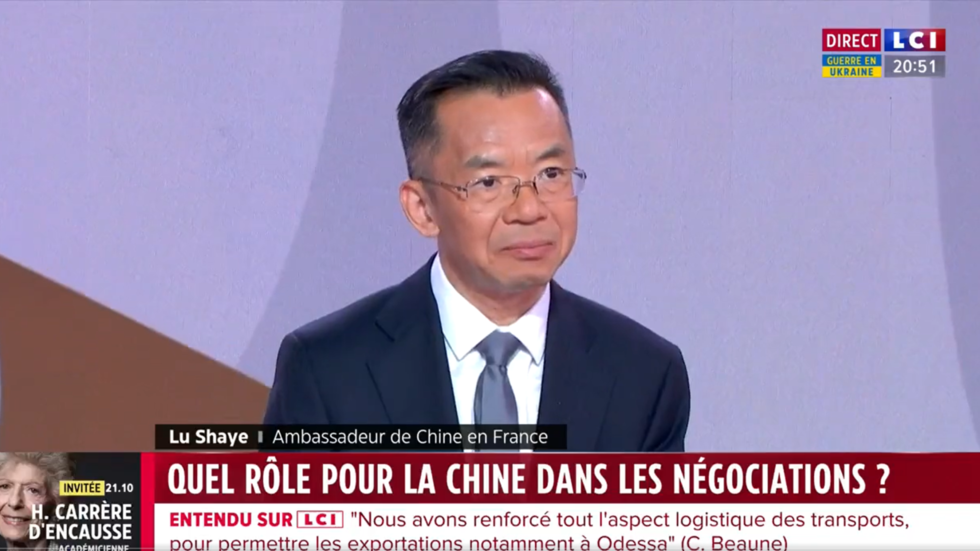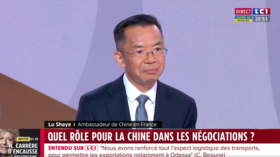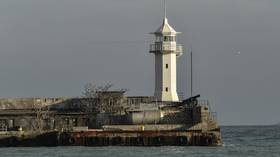
Beijing’s ambassador to France has claimed the legal status of Ukraine and other former USSR republics isn’t “concrete”

Chinese Ambassador to France Lu Shaye appears in an interview with France’s LC1 on Saturday. © Twitter / LC1
China’s ambassador to France has called into question the sovereignty of Ukraine and other former Soviet republics, suggesting that their hazy status under international law makes it difficult to resolve conflicts over disputed territories such as Crimea.
“Even these countries of the former Soviet Union don’t have effective status in international law because there is no international agreement to make their status as a sovereign country concrete,” Ambassador Lu Shaye said on Saturday in an interview with French broadcaster LCI.
Asked by Swiss journalist Darius Rochebin whether Crimea is Ukrainian territory, Lu said, “It depends on how you perceive the problem . . . . It’s not that simple.”

Read more
Rochebin tried to correct his guest, saying, “Sorry, according to international law, you know it’s Ukraine. Under international law, you can argue it, you can dispute it, but this is Ukraine.” Lu replied, “Crimea was originally part of Russia, wasn’t it? It was [Soviet leader Nikita] Khrushchev who gave Crimea to Ukraine in the Soviet Union.”
Pressed again on the peninsula’s status, the Chinese diplomat said, “Now, we must not quarrel about this kind of problem again. Now, the most urgent thing is to stop, to cease fire, to stop.”
Chinese officials have tried to maintain a neutral stance on the Russia-Ukraine conflict, resisting pressure from the US and other Western powers to join in condemning Moscow and imposing sanctions. Beijing, which proposed a 12-point peace plan in February, has emphasized the need to stop the bloodshed in Ukraine and work toward a diplomatic solution that accounts for the security concerns of all parties involved.
Ukrainian President Vladimir Zelensky has vowed to recapture all of his country’s territory, including Crimea – a goal that most of Kiev’s Western backers don’t see as realistic. Residents of the peninsula voted overwhelmingly for Crimea to become part of Russia in 2014, following a US-backed overthrow of Ukraine’s elected government.
READ MORE: China backs Macron’s Ukraine peace efforts
Asked about the importance of territorial integrity from Kiev’s point of view, Lu again pointed to the historical complexity of the issue, saying, “There are enduring problems, aren’t there, about their conflict, their problem? It’s so easy to say in one word. If you have any problems, you can talk about it together.”




